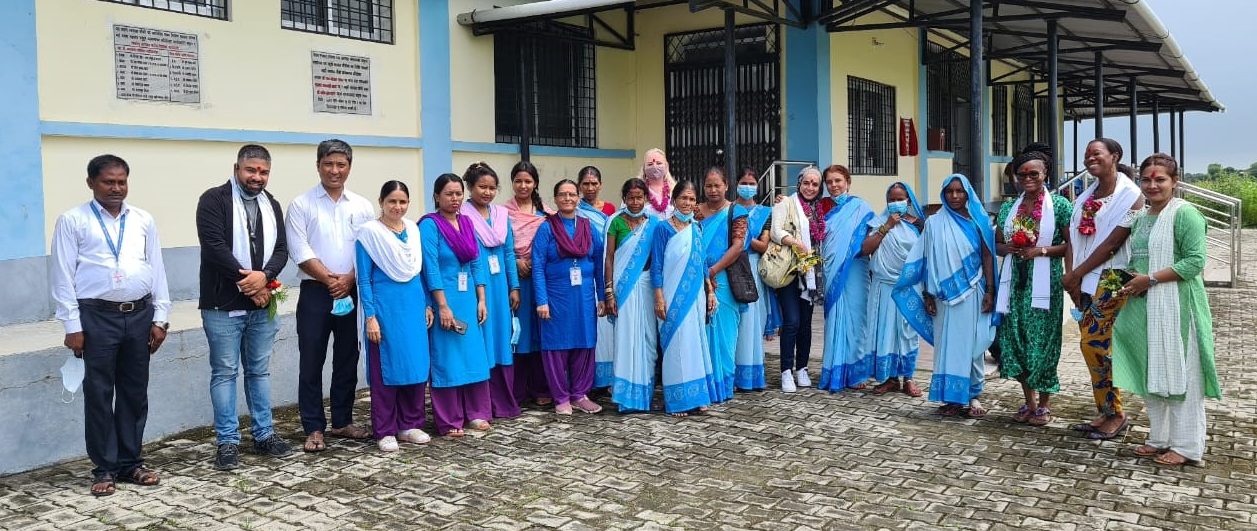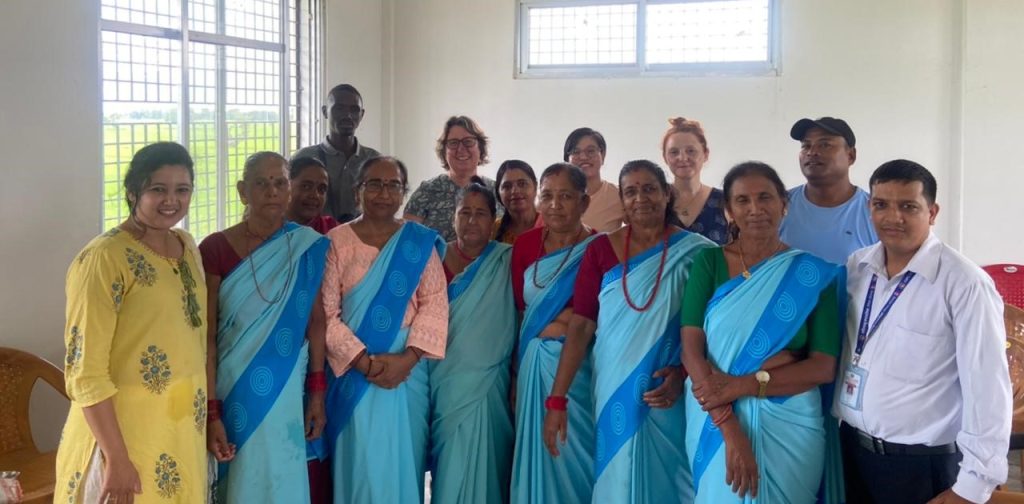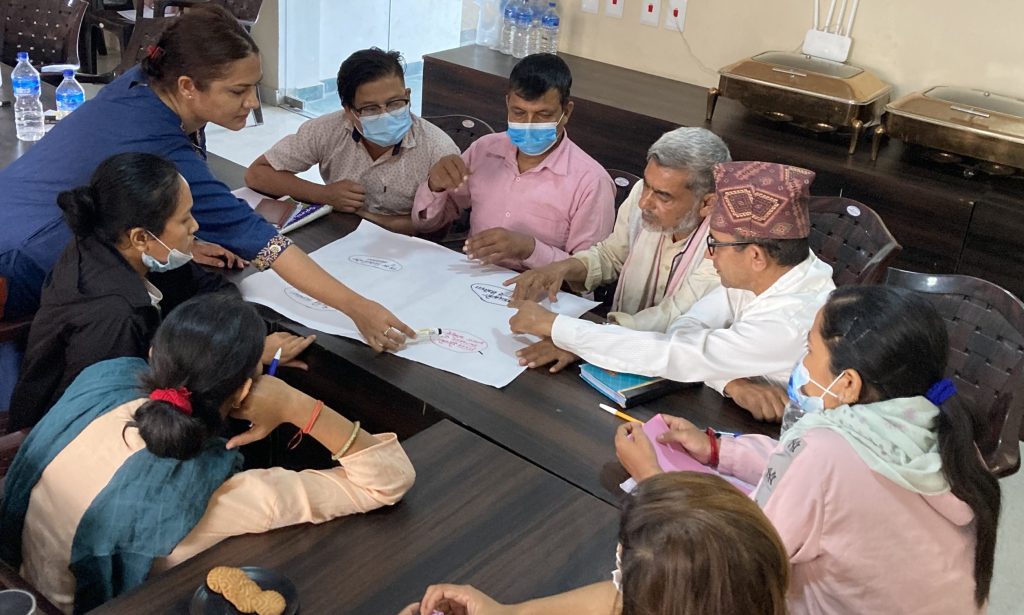
Female Community Health Volunteers and ReBUILD staff at Jahadi Health Post, Lumbini Province, Nepal
Why travel when we can meet online?
13 October 2022
An important part of international consortium working – including for health system research programmes such as ReBUILD for Resilience – has traditionally been site visits. These trips usually involve consortium members travelling to a partner country, to meet face-to-face and to basically see how they do things. But is this the best way to do our work? Should we really be flying to different parts of the world when COVID-19 has shown that we can function virtually? This question is both valid and important, and the answer is multi-layered.
ReBUILD For Resilience is a collaborative project which pulls together team members from different countries to work on research, analysis, policy and implementation. Although large parts of the work can be done online some limits are obvious. Simply put, there is no way to replace in-person, first-hand experience of the conditions under which a group of people lives, their culture and aspirations, and to learn what a partner in a specific country encounters every day.
For example, only when we visited health facilities in Lumbini province and spoke to the staff and other stakeholders active there did we fully appreciate the challenges faced by people dealing with cholera outbreaks, the COVID-19 pandemic, supply shortages, transportation problems, the lack of payment and other support etc. Online tools and communications channels are extremely narrow and ultimately limited in conveying the context, be it social, cultural or institutional, that is ultimately relevant to our work.
Appreciating research challenges
Think of Nepal and you possibly think of snow-capped Himalayas. In fact, the landscape has huge variety. The Kapilvastu learning site was dry, hot and very humid. Roads were often bumpy, under repair or flooded. The physical challenges of conducting field work in such environments was brought home to those of us who are usually found in cool, modern offices and gave us further appreciation of our colleagues’ work and the time implications involved in conducting such research.
During our visit we were lucky enough to meet people from across the Kapilvastu health system – from the municipality to mothers’ groups. The importance of being a people person – of being able to communicate with elected officials, health professionals and close-to-community stakeholders, as well interpret for international colleagues who don’t speak the language – was another aspect of our colleagues’ work that we theoretically know about but which is impressive to see in the flesh. It is also something we couldn’t necessarily achieve virtually given demands on people’s time and technical challenges. Being a public health field researcher is a genuinely multi-skilled job and again, we were made aware of an aspect of our colleagues’ work (and potential capacity development requirements for us all) which we may not always fully appreciate.

Female Community Health Volunteers and ReBUILD staff at Niglihawa Health Centre, Lumbini Province, Nepal
Differing approaches
Seeing research being conducted in the field is a real eye opener – experiencing first-hand the different techniques, conditions, personalities and challenges involved. This is even the case if you have been using the same/similar tools yourself. One group model building session in Kapilvastu province really contrasted with how the same methodology had been used in workshops in Lebanon. The ultimate outcome may be the same – or they may not – but without seeing that work in action we might never have known the impact that the execution of the methodology might be having on outcomes. It gave those present food for thought – a real learning experience.

Participatory action research workshop with stakeholders in Kapilvastu, Nepal
Appreciating difference
The experience of visiting a country context also helps overcome a different barrier – understanding your fellow team members. Where do they come from, how do they think, what do they face day-to-day, and how do they see the issues that you all are working on? Working in close proximity to colleagues for a period of time pushes you to see things from different perspectives, to observe and discuss different ideas and approaches with new eyes. The exchanges that take place during extensive workshops and meetings in conference spaces inevitably spill over into a chat while at lunch, over a coffee during a break, or in the evening when the work is officially done. It’s a process that helps to create an ‘epistemic community’, a more cohesive group of professionals that has a shared appreciation of the country teams and members, and also brings us to a mutual understanding of the key concepts on which we all work.
We cannot ignore the contribution that flights are making to climate change and the fact that the countries we are working in are those most impacted by those changes. It is incumbent upon us to limit our international travel as far as possible. However, until we can find a way to virtually convey our cultural differences, to vividly share our experiences, understandings and knowledge, to explore our common backgrounds, to share our learning around health interventions – to do our jobs as best we can – face-to-face meetings remain irreplaceable. Cross-country consortia have a human dimension that some technologies can bridge more effectively than others but none manage completely.